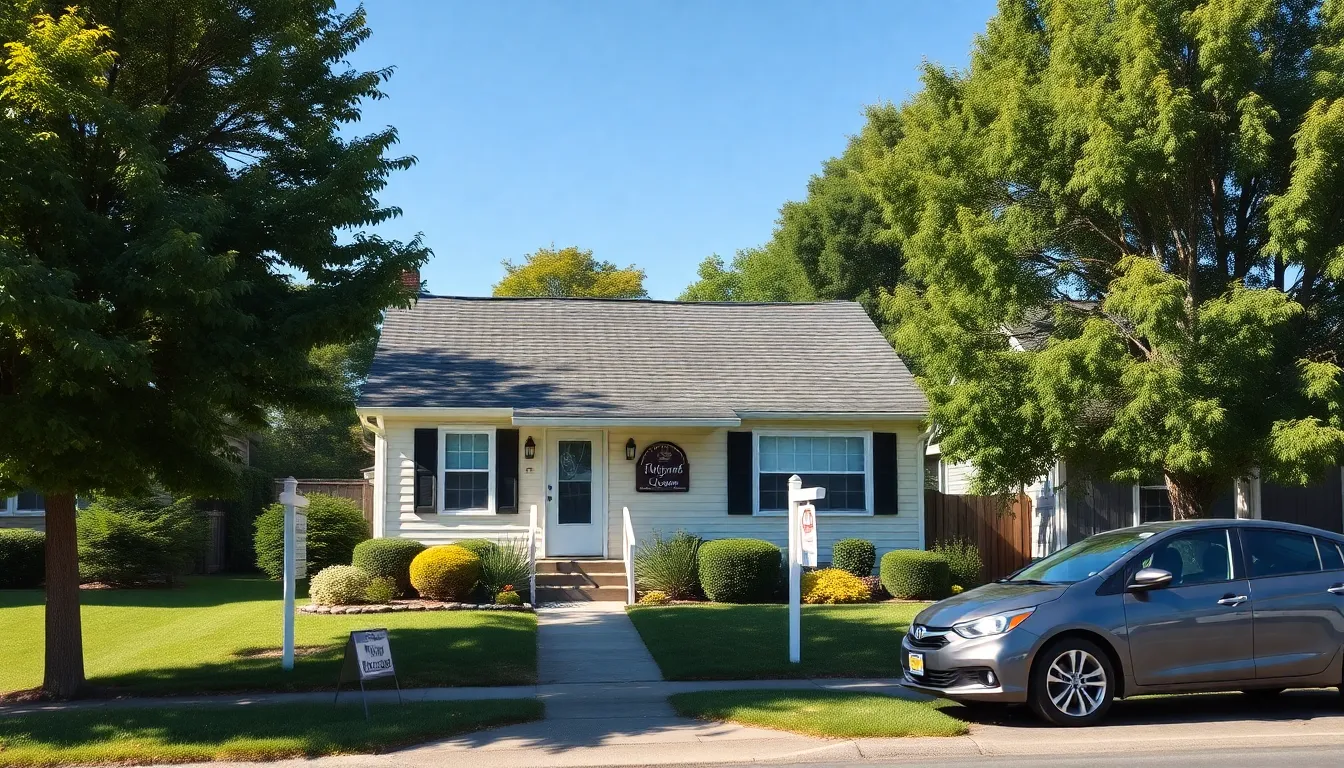Starting a home business can feel like a dream come true—until zoning laws crash the party like an uninvited guest. Navigating the maze of regulations can seem daunting, but understanding zoning for home businesses is crucial for turning that dream into a reality. After all, no one wants to be the neighbor who inadvertently turns their garage into a bustling bakery, complete with a line of hungry customers and a very unhappy homeowner association.
Table of Contents
ToggleUnderstanding Zoning for Home Business
Zoning laws significantly affect home businesses. These regulations dictate how properties can be used and help maintain community standards.
Definition of Zoning
Zoning refers to local government regulations that control land use. These laws designate specific zones for residential, commercial, or industrial purposes. A property’s zoning classification determines what activities can legally occur on it. For instance, a residential zone typically prohibits commercial activities. Regulations often establish requirements for building modifications, signage, and parking. Compliance with these rules is crucial for anyone considering a home business.
Importance of Zoning for Home Businesses
Zoning impacts the viability of running a business from home. Local laws can either facilitate or hinder entrepreneurial efforts. Businesses must align with zoning ordinances to avoid penalties, fines, or forced closures. Understanding these regulations also helps prevent conflicts with neighbors and homeowner associations. Zoning ensures that home businesses do not disrupt the residential character of neighborhoods. Researching local zoning laws leads to informed decisions when launching a home-based venture.
Types of Zoning Regulations

Zoning regulations vary by location and dictate how properties can be utilized. Understanding these categories helps in adhering to local laws while operating a home business.
Residential Zoning
Residential zoning typically governs areas designated for homes. It focuses on maintaining neighborhood character and restricting non-residential activities that could disrupt residents. Specific regulations may limit the number of clients visiting a home-based business. Home occupations like beauty salons or tutoring might face space limitations or parking restrictions. Generally, residential zoning supports small, low-impact business activities without jeopardizing the peace of the neighborhood.
Commercial Zoning
Commercial zoning applies to properties used for business purposes. In commercial zones, various businesses can operate, including retail stores, offices, and medical facilities. These regulations often specify permissible hours of operation and signage requirements. Certain areas within commercial zoning may restrict activities that generate excessive noise or traffic. Understanding these specific requirements is vital for ensuring compliance while maximizing business opportunities. Each commercial zone aims to facilitate vibrant business environments while addressing potential community concerns.
Steps to Comply with Zoning Laws
Complying with zoning laws is essential for operating a home business. It involves thorough research and necessary applications to ensure legality.
Research Local Regulations
Understanding local regulations requires reviewing zoning classifications specific to your area. Local government websites often provide detailed zoning codes and regulations. Types of zones, such as residential and commercial, greatly influence business operations. Each neighborhood might impose restrictions on non-residential activities that can impact residents. Reviewing homeowner association rules also ensures compliance with community standards. Engaging with local zoning offices offers clarity on permissible business activities and any limitations.
Apply for Necessary Permits
Applying for necessary permits involves gathering relevant paperwork and submitting applications to local authorities. Most home businesses need a permit to operate legally. Requirements for permits vary depending on the business type and location. Some municipalities may demand inspections to ensure compliance with safety standards. Fees are typically associated with these applications, and processing times can vary. Maintaining records of these permits is beneficial for future reference and compliance checks. Following these steps helps secure a smooth, compliant operation for a home business.
Challenges in Zoning for Home Business
Zoning regulations present numerous challenges for individuals starting a home-based venture. Understanding the specific limitations set by local authorities is essential for maintaining compliance.
Common Restrictions
Common restrictions often include limitations on client visits, business signage, and parking. Local authorities may restrict operating hours, ensuring business activities do not disturb neighbors. Many residential zones prohibit excessive noise or traffic, aiming to preserve community tranquility. Homeowner associations sometimes impose additional rules that further limit business operations. Failure to adhere to these constraints can lead to fines or business closure.
Navigating Zoning Conflict
Navigating zoning conflict requires careful communication with local zoning offices. Engaging with officials helps clarify permissible business activities in specific zones. He or she must also be prepared to address concerns from neighbors and homeowner associations. Presenting a well-thought-out business plan can mitigate resistance and foster goodwill. Collaboration with local stakeholders often encourages more favorable outcomes and maintains community harmony.
Understanding zoning laws is vital for anyone considering a home business. These regulations not only dictate what activities can take place but also protect community standards. By researching local zoning classifications and engaging with zoning offices, entrepreneurs can ensure compliance and avoid potential pitfalls.
Navigating these legal requirements with care leads to smoother operations and fosters positive relationships with neighbors and homeowner associations. A well-prepared business plan can alleviate concerns and promote harmony within the community. Ultimately, aligning a home business with zoning laws paves the way for success and sustainability.





